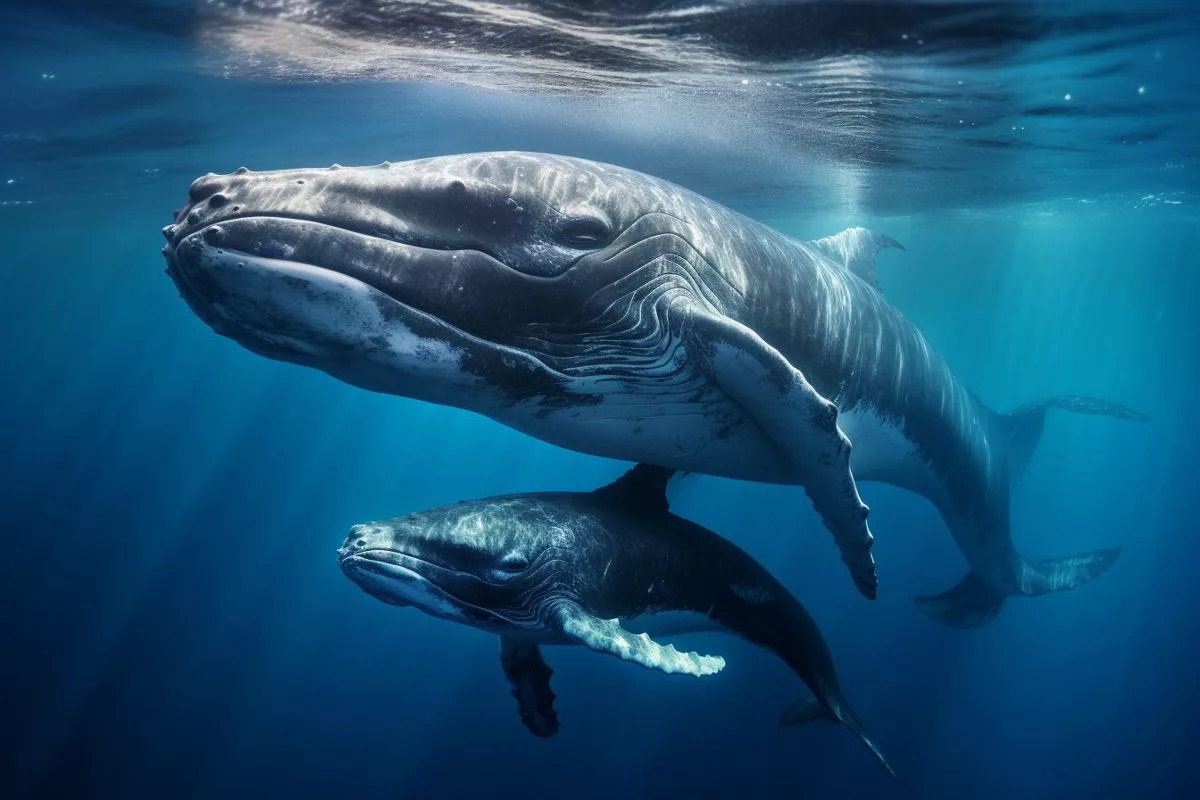Cape Town is committed to preserving its coastal biodiversity and encourages respectful cohabitation between humans and marine life. The city has regulations in place to safeguard the natural ecosystem and urges all visitors and locals to experience its stunning coastline responsibly. Cape Town’s call to respect and protect its coastal wildlife is more than a plea; it signifies their conviction in the delicate balance of nature.
How is Cape Town committed to preserving coastal biodiversity?
Cape Town is a model city advocating for peaceful cohabitation and reverence for all life forms. The city has regulations in place to safeguard the wholeness of the natural ecosystem and encourages all visitors and locals to experience its stunning coastline responsibly. Cape Town’s call to respect and protect its coastal wildlife is more than a plea; it signifies their conviction in the delicate balance of nature.
Cape Town: A Haven of Human-Wildlife Cohabitation
At a time when conflicts between humans and wildlife are on the rise, Cape Town shines as a model city advocating for peaceful cohabitation and reverence for all life forms. Blessed with immaculate beaches and thriving marine life, Cape Town provides a distinctive chance to inhabit a world teeming with intriguing coastal wildlife. Nonetheless, recent events have necessitated the city to remind its residents and tourists to adopt a mindful approach towards these extraordinary beings.
During a tranquil November morning in 2023, along the coast of False Bay, a Southern Right Whale and its offspring became the unanticipated focus of human intrigue. Swimmers from the Glencairn tidal pool transgressed the safe boundaries, disregarding the Threatened or Protected Species Regulations (TOPS) and the City’s Coastal By-Law. They ventured alarmingly close to the water-dwelling behemoths. Coupled with a heart-breaking incident involving the death of a seal at Strand, these occurrences have led the city to intensify its call for respect and protection of its coastal wildlife.
The city’s regulations unquestionably state that it is unlawful for anyone or any watercraft to approach within 300 meters of a whale. These laws are in place not to inhibit our bond with nature but to safeguard the wholeness of the natural ecosystem, enabling us to marvel at its wonders from a safe and respectful distance.
Safeguarding Cape Town’s Rich Coastal Wildlife
With the imminent arrival of the tourist season, Cape Town earnestly encourages all visitors and locals to experience its stunning coastline responsibly. Alderman Eddie Andrews, the City’s Deputy Mayor and Mayoral Committee Member for Spatial Planning and Environment, affirms this sentiment. He cordially invites everyone to enjoy the unique city but emphasizes the necessity of complying with the local by-laws. His statement serves as a powerful reminder that wildlife, by its very nature, is wild and commands our highest respect.
To promote safe and respectful interaction between humans and marine life, the city urges residents and tourists to report any unusual activities to the City at 021 480 7700. Additionally, for swimmers who wish to experience the mesmerizing marine life in open water, the city recommends the use of a surface buoy or beacon to ensure they are visible to vessels, boats, and kayaks.
The Balance of Nature: A Shared Responsibility
In the grand scheme of life, every creature holds a crucial role. The Southern Right Whales, known for their colossal size and calm demeanor, serve as a touching symbol of the ocean’s power and vulnerability. Their presence in Cape Town’s waters signifies not just an ecological wonder but also the city’s unwavering commitment to biodiversity conservation.
As the city readies itself to welcome the influx of tourists, it reinforces its pledge to ensure the awe-inspiring spectacle of coastal wildlife can be appreciated responsibly and respectfully. Cape Town’s call to respect and protect its coastal wildlife is more than a plea; it signifies their conviction in the delicate balance of nature.
The city’s resolve, together with the collective efforts of its inhabitants and tourists, can set a precedent for human-wildlife cohabitation. It can redefine our relationship with nature, turning mere sightings into comprehension, transforming observers into protectors.
In conclusion, Cape Town’s appeal underscores that our affection for the natural world should not lead to intrusion but to admiration from a safe distance. After all, respect for all life forms underpins any flourishing ecological system. The tale of Cape Town and its coastal wildlife is a shared narrative of coexistence, and it’s our responsibility to ensure it continues to be a shared experience, marked by harmony and respect.
Indeed, the city’s persistent efforts to safeguard its wildlife while offering an unparalleled experience for its residents and visitors set a robust example for other seaside cities globally. Its message resonates clearly: it is entirely feasible to appreciate, enjoy, and coexist with wildlife without disrupting their natural behaviours and habitats. It is, in essence, a lesson in respect, thoughtfulness, and ultimately, coexistence.
1. What is Cape Town’s commitment to preserving coastal biodiversity?
Cape Town is committed to preserving its coastal biodiversity and has regulations in place to safeguard the natural ecosystem. The city encourages respectful cohabitation between humans and marine life and urges all visitors and locals to experience its stunning coastline responsibly.
2. How does Cape Town promote safe and respectful interaction between humans and marine life?
Cape Town urges residents and tourists to report any unusual activities to the city at 021 480 7700. For swimmers who wish to experience the mesmerizing marine life in open water, the city recommends the use of a surface buoy or beacon to ensure they are visible to vessels, boats, and kayaks.
3. What are the regulations in place for approaching whales in Cape Town’s waters?
It is unlawful for anyone or any watercraft to approach within 300 meters of a whale in Cape Town’s waters. These laws are in place not to inhibit our bond with nature but to safeguard the wholeness of the natural ecosystem, enabling us to marvel at its wonders from a safe and respectful distance.
4. Who is Alderman Eddie Andrews, and what does he emphasize regarding Cape Town’s coastal wildlife?
Alderman Eddie Andrews is the City’s Deputy Mayor and Mayoral Committee Member for Spatial Planning and Environment. He cordially invites everyone to enjoy the unique city but emphasizes the necessity of complying with the local by-laws, and his statement serves as a powerful reminder that wildlife, by its very nature, is wild and commands our highest respect.
5. How does Cape Town’s commitment to preserving coastal wildlife set an example for other seaside cities globally?
Cape Town’s persistent efforts to safeguard its wildlife while offering an unparalleled experience for its residents and visitors set a robust example for other seaside cities globally. The city’s message resonates clearly: it is entirely feasible to appreciate, enjoy, and coexist with wildlife without disrupting their natural behaviours and habitats.
6. Why is it important to respect and protect Cape Town’s coastal wildlife?
Respecting and protecting Cape Town’s coastal wildlife is crucial because every creature holds a crucial role in the grand scheme of life. The Southern Right Whales, for example, serve as a touching symbol of the ocean’s power and vulnerability. Additionally, respect for all life forms underpins any flourishing ecological system, and the collective efforts of the city’s inhabitants and tourists can set a precedent for human-wildlife cohabitation, redefining our relationship with nature and transforming observers into protectors.








